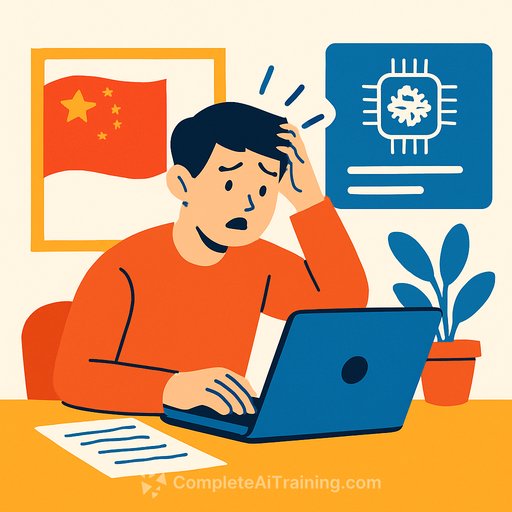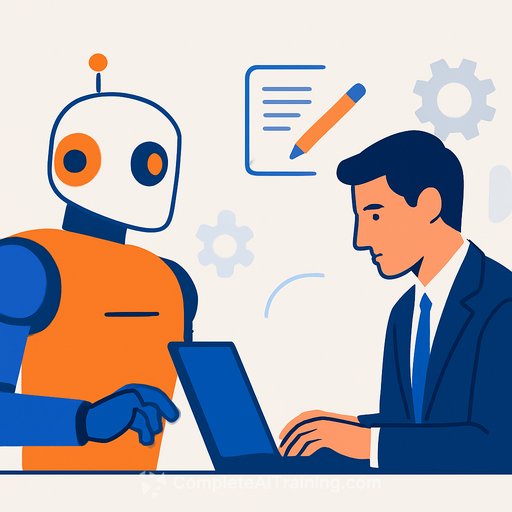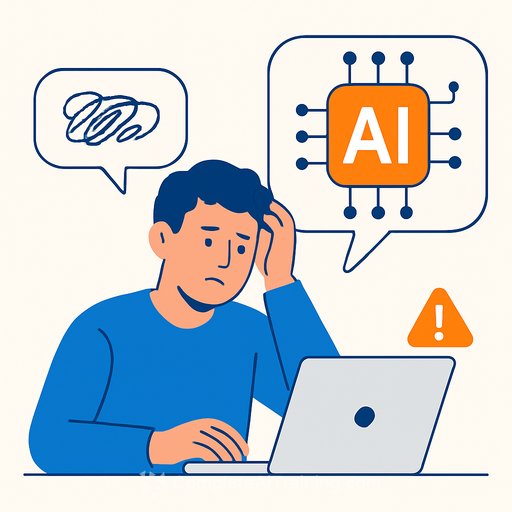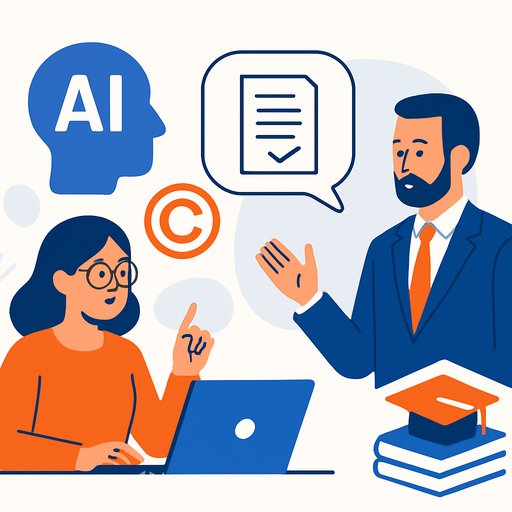AI: Blessing or Curse for China's New Generation of Writers?
At a recent speculative fiction conference in Suzhou, a clear split emerged among young Chinese writers. Some feel a surge of uncertainty as tools like DeepSeek close the gap with human prose. Others are folding AI into their process to move faster and write better.
The question isn't whether AI will touch your writing. It already has. The question is how to protect your voice, your rights, and your career while using the tech as a tool-not a crutch.
Why some writers are anxious
Award-winning sci-fi author Chen Qiufan called DeepSeek's launch a turning point. After testing it, many felt AI had jumped to a level close to human capability-especially unnerving for newer writers.
Two big concerns keep coming up: accusations of plagiarism and the erosion of originality. In text, it's harder to spot AI reuse compared to visuals, which could make unethical writing more covert. That ambiguity creates pressure and second-guessing for anyone building a career on voice and craft.
Rules, labels, and copyright
China now requires platforms to label AI-generated content. Images and videos were already labeled; text is catching up. For writers, that means disclosures are part of the workflow.
The harder problem is copyright. China's law was last amended in 2020 and doesn't clearly define ownership of AI-generated output: the developer, the user, or original creators whose works trained the models. Chen argues that institutional safeguards are weak and outcomes like the recent US settlement where an AI company agreed to pay authors over dataset use would be unlikely in China.
The takeaway: expect a power imbalance with tech firms and be proactive about documentation, contracts, and labeling.
Where AI helps: real examples from working authors
Hao Jingfang, Hugo Award winner for Folding Beijing, treats AI as a collaborator across a long, structured process. She reports gains in speed, breadth of knowledge, and drafting support-especially when she feeds the model clear inputs.
- Provide detailed world-building and character documents.
- Upload past work or sample paragraphs to keep a consistent style.
- Use scene-by-scene outlines and long, specific prompts (200+ words) to set constraints.
She still rewrites when needed, but sometimes 90% of an AI draft is usable. That's time back for higher-level decisions.
Two-time Chinese Nebula Award winner Feng Yuan (pen name: ShuangChiMu) uses AI to fill knowledge gaps-like space systems, closed biospheres, and terraforming concepts for Ceres. The model produces technical scaffolding she can reference while focusing on story and character. Her caveat: AI won't kill creativity, but it can make writers lazy. Don't outsource your strengths.
A practical workflow for writers
- Define your "no-AI" zones: key scenes, voice-critical passages, final line edits.
- Front-load context: share world bibles, character sheets, and style samples before drafting.
- Outline deeply: write scene objectives, beats, constraints, and tone notes. Longer prompts reduce drift.
- Draft in passes: idea exploration → structural pass → line pass → author rewrite.
- Label and log: mark which sections used AI, store prompts/outputs, and keep version history.
- Run checks: citation audit for facts; plagiarism scan for peace of mind. Detectors are unreliable-your logs matter more.
- Contract clarity: align with publishers on disclosure, datasets, and rights over AI-assisted text.
Protecting originality without slowing down
- Keep a living style guide: diction, rhythm, sentence length, recurring motifs. Feed it to the model.
- Use AI where you're weak: research, world mechanics, technical exposition. Write your strengths yourself.
- Constrain the model: specify do/don't lists, banned clichés, and target word economy.
- Rewrite like a pro: after AI drafting, revise for subtext, specificity, and voice markers only you use.
Ethics and signaling trust
- Disclose AI assistance where required and where it builds trust with editors and readers.
- Credit sources for research-heavy passages. Maintain a bibliography of materials you prompted into the model.
- Minimize training leakage: avoid pasting full unpublished manuscripts into public models; use excerpts or private tools.
What this means for your career
AI is changing process economics: faster research, broader idea generation, more iteration. It also raises the bar on voice, originality, and professional rigor.
The wins go to writers who systematize: clear inputs, auditable outputs, firm boundaries, and relentless rewrites. Treat AI like a junior collaborator-useful, fast, and never in charge.
Resources
Your membership also unlocks:






